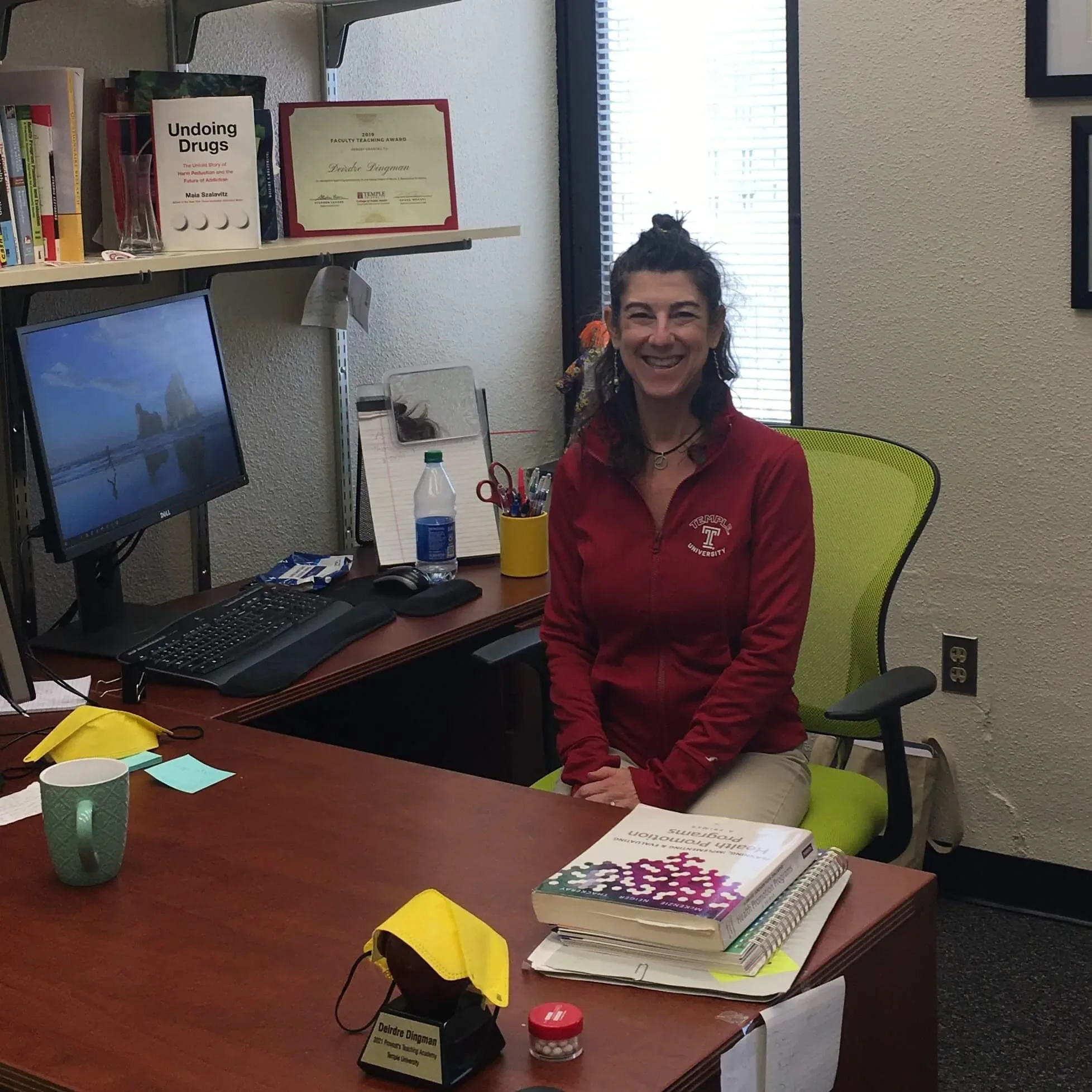I recently published an article on The PhD Place giving advice to PhD students based on my own doctoral experience (I am now an associate professor). Here is Part 2 detailing my final five tips!
Tip 6 - Have a support system ready and use it. I hear Twitter is great for this!
Even under the constant state of duress and doubt as a graduate student, I was still committed to being a full-time student – I was all in. I rode my bicycle to campus and embraced my opportunities. I signed up for some extra things whenever possible and on my way to one of these extra workshops, right as I left my apartment, I hit a curb and fell off my bike. My elbow was scraped and bleeding, but I could not miss the workshop. I recall sitting in there, late, bleeding and trembling. When I recalled the event to my sister later that day, she said, “Maybe you bit off more than you can chew. You can come home.” It felt like another blow. I will never forget her lack of faith in me, how much it hurt, and that it closed off a safe space. Why would I tell her anything else? I wasn’t without support. I have a best friend who still lives in that area, and we went on weekly walks where I was able to vent about my crazy cohort and hard to please professors. And my former boss from AHEC was also supportive and encouraging. In one email she reminded me, quite unlike my sister, to “keep your eye on the prize” except there was a typo and it said ‘price’ which was equally apt and inspiring.
I had a decent support system – even a bit on Facebook – but nothing like what I see now for folks on Twitter. I see a lot of camaraderie, commiseration and support with #academictwitter, @thephdplace, and others.
Tip 7 - Choose your committee members and chair carefully. You want experts and advocates who have time for you.
I do want to highlight some positive experiences – for example, during my second year, one of the faculty was able to cover my assistantship on his Small Business Innovation Research grant and I was able to remain ‘funded’ for the duration. I was able to do some basic data analysis and learn from a quantitative methodologist that was on his team. I recall that I volunteered to be her TA so I could learn more about stats by grading assignments and attending her classes to ‘help out.’ (I find this ironic in the current context of grad student unions and strikes). The quantitative methodologist became my co-chair because my chair didn’t have the same expertise – but the quantitative methodologist was new, junior faculty so she could not be chair.
My co-chair was tough, too tough, but without her I would be a lesser academic now. It is also thanks to her that I know the difference between assistant, associate, and full professor and that you are not supposed to call professors, professor unless they have reached this full status. This ties into finding someone to tell you how this all works!
Tip 8 - Do not rush your PhD, take at least 4 years – or the full 5 to 7 most programs give you.
One of my co-chair’s suggestions was that I slow down, take another semester. I vehemently and often tearfully pushed against the idea that I extend my stay. I was certain I could not tolerate feeling this abject ineptness any longer than absolutely necessary. But she was right. Do not rush your PhD!
I know there are limits to how long a PhD program should take and many people take too long, but 3.5 years was a rush, and I paid for it in my options at graduation. Honestly, I wanted to be done and back in Florida – away from the feelings of incompetence in my writing, and away from the guilt that my mother purposefully or not, put upon me for being away. And I must admit, at the lowest point of the program, draft 6 of my dissertation perhaps, I curled up on my couch and cried – thinking, “if I don’t wake up, it will be ok.” I assure you; I was a vibrant full of life person before the program, and that sentiment speaks to the grueling nature of many PhD programs.
Anyways, back to my studies. I took a lot of stats classes because I found comfort in problems for which there were right answers. After the first year, I had more control over my courses, I think one should really consider what they want their niche to be and what set of courses, what plan of study, will get them there.
In my program, we learned a bit about teaching and then became instructors of record for a course. I excelled there – in planning and teaching. I guess it makes sense because it was that passion for educating others that led me to a doctorate program in the first place, and its foretelling that I am a teaching track associate (😊) professor now. But I did the research, I did the research as a grad assistant and I did it for my TWO dissertation studies, yes, two because the hardcore co-chair convinced my committee that one of my studies was not rigorous enough. The committee also turned down my dissertation proposal for the second study the first time around – this is after the same committee said my comps were the best they’d seen. I remember crying in the bathroom after, thinking of this as a setback that would cost me months.
But I revised the proposal, it was accepted, I conducted my research, analyzed my data, shared preliminary results with the committee and then spent months writing up the studies. At first the senior faculty chair was the primary reader of my drafts, and his feedback was overwhelmingly positive, minor changes here or there, just like the MPH program. After he made his positive comments, the co-chair offered her feedback. The draft became filled with color-coded comments, edits, suggestions, and instructions to keep trying. After the first 3 rounds of this, I told my chair to let the co-chair go first.
Tip 9 - Do not have junior faculty as a co-chair!
In fairness to her though, giving that level of feedback is time consuming and working with a grad student without strong writing skills can be frustrating. The main reason I did not have strong writing skills is because no one taught me academic writing or gave me that level of writing feedback in the MPH program. I do not make that mistake with my students.
My dissertation studies were published, and when I graduated, I had 2 scholarly publications on my CV – my co-chair also taught me how to write a CV, research statement, teaching philosophy and cover letters – or at the least, pointed me to resources on the internet. . But I review PhD candidates at my institution now and they have tons of publications that sometimes start in undergrad! I know that I blew up my undergrad program, but if I had had an assistantship for my MPH or even a thesis instead of an internship – I’d probably have more publications too. On the upside, I had and continue to have zero debt.
The last piece of advice is as important as the first – which was to find someone who knows how it all works and ask them to tell you:
Tip 10 - No matter how tired or burned out you are, do everything you can to secure your next position (industry, academia, post doc) before you leave your program.
I graduated in December, ahead of my peers, and moved back home to Florida – I had promised my mother that after I finished, I would live in her house while I did my job search – she was thrilled. I applied to faculty positions and various public health organizations in Florida, my co-chair told me that limiting myself to one state would make finding a job difficult (right again!), and then I searched for post docs. I also joined local Florida public health boards and coalitions, volunteering my time in an effort to network.
I was really interested in policy, and I saw that the Public Health Law Research (PHLR) folks were having an annual conference in Atlanta – so I found the co-director on line, called her, and convinced her to give me the student rate to attend their conference just so I could meet some of the folks I admired. I did that, I went. It was one of the hardest things I have ever done – using money from my savings and spending two days engaging in small talk – being social. I had really wanted to do a post doc with a researcher from the University of Florida, but he did not have any funding. A month or so later I saw that the PHLR folks had a post doc position in Philadelphia… yes that is even further north than North Carolina. But an odd thing happened between me and my mom. In the 7 or 8 months after graduation that I looked for and did not get a job, my self-esteem plummeted – I started to feel that all that time and effort had been for nothing and that my life had been better before I left the AHEC job. It was clear in my affect that I was not happy. So, when the PHLR post doc interview turned into a job offer, an 18-month position in yet another state, my mom did NOT fight it. She finally got the mothering part right… my daughter’s happiness and career are more important than me (she also had more friends by this point). She does love telling people her daughter is a doctor, a professor! [also, Florida politics have changed substantially since I was searching for a job there, and I think my path turned out to be just the right one.]
There is a lot that happened during the post doc too, another uncomfortable experience that taught me a few things, like how to write a competitive research proposal for the US National Institutes of Health R01 (a prestigious grant supporting groundbreaking research with significant impact). From the post doc, I was hired as primarily teaching faculty for the College of Public Health where I am currently finishing up my first year after being promoted to Associate Professor. I have wonderful colleagues in my department and have been mentored by compassionate, brilliant folks. I have a few more publications too.
I hope these ten tips have given you food for thought in your own journeys.
Final thought: The motto at my university is ‘perseverance conquers’. It feels apt. 😊




